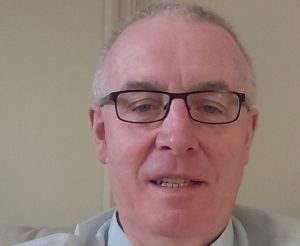
By Sarah Mac Donald - 07 June, 2016

Fr Tim Hazelwood
Courtesy: The Tablet
A priest who was falsely accused of sexual abuse and recently cleared his name after a six year battle has warned the Irish hierarchy that it needs to rethink its treatment of accused priests and its policy on anonymous accusations.
Fr Tim Hazelwood, parish priest of Killeagh in Cloyne diocese, has gone public on his ordeal in order to highlight concerns over a climate in the Church and society which presumes priests are guilty unless they prove their innocence.
In this week’s issue of The Tablet, the 57 year old psychotherapist, who has been a priest for 34 years, said priests in Ireland need to establish a national union or some body which will lobby the bishops and the current safeguarding structures on their behalf to ensure that natural justice is not undermined.
He took a legal action to the High Court in Dublin against the man who anonymously accused him of abuse and the case resulted in the parish priest being vindicated.
“I have received a detailed signed retraction and admission that lies were told and a signed apology. My legal fees were paid and a generous donation was paid to my nominated charity, Aware.”
He said that while he has no understanding of the motives of his accuser, his concerns are mainly around the Church which he feels “cut me loose, hung me out to dry, disowned me and left me feeling very alone”.
Last week, he outlined his concerns to four bishops when the Association of Catholic Priests met with representatives of the Irish hierarchy.
While he pays tribute to Bishop William Crean of Cloyne who stood by him and appointed him a parish priest three years ago, there are others in the institutional Church who treated him shabbily.
“I struggled between my desire to clear my name and the expectation to lie low and to say nothing, hoping that it will go away.”
Fr Hazelwood was never removed from ministry because his accuser remained anonymous.
However, had the man come forward, the priest believes his reputation and life would have been “destroyed” as he would have been stood down from ministry and would probably have been named in the media even ahead of an investigation and despite being innocent.
“As a priest, if you don’t have your good name – you are finished.”
According to Fr Hazelwood, though the accusation was anonymous, and the accuser did not come forward and the National Board for Safeguarding Children advised that no action should be taken, his diocese nevertheless informed the police and the Health Board, giving them his name.
“Canon 1717 says, ‘Care is to be taken that this investigation does not call into question anyone’s good name.’ My right to my good name and reputation was clearly disregarded,” he criticised.
Acknowledging that “Huge damage has been done by clerical sex abuse”, Fr Hazelwood said he believed that a majority of complaints are genuine.
“Today the issue remains current, allegations against ‘celebrities’ in England and in Ireland and the lid is being lifted on abuse within foster care. While these tragedies continue, natural justice nonetheless needs to be done for both accused and accuser.”
He asked if the accused person who is innocent is in fact presumed guilty until proven innocent?
“Does he have rights even to view his own file? Does he have a right to know that he has been accused, before his name is filed and passed on to authorities?”
According to Fr Hazelwood, he tried on three occasions to gain this information from the National Board but was “fobbed off”.
“What is the Church’s policy on anonymous complaints? What support system is in place for priests wrongly accused and who choose to fight for their good name?”
“I felt totally abandoned by ‘my Church’ and often thought about people on death row who had committed heinous crimes and yet were not abandoned by family and friends. Where does duty of care to members come in?”
He said he took “certain steps to be vindicated”. His first step was to go to the Gardaí and to make a complaint against his accuser who was intimidating him with anonymous phonecalls and letters. He later learned that the man was also visiting his parish but the priest was never told.
Fr Hazelwood took a civil case to the High Court in Dublin and his solicitor was Robert Dore, the solicitor who worked with the Association of Catholic Priests and Fr Kevin Reynolds after the former missionary was falsely accused in an RTÉ television documentary, ‘Mission to Prey’, of raping a Kenyan teenager and fathering a child.
“If as a priest you don’t have your good name, you are finished,” he warned.
He also contacted other priests to whom this had happened and said there was “uniformity in the way they were treated appallingly by the Church”.
“They had no support, felt abandoned and had no pastoral care given. Everything is against you, you feel shame and you’re destroyed – the temptation is to stay quiet.”
“I spoke to one priest who was going to agree that something had happened, even though it hadn’t happened, because his religious order felt that it would be sorted out if he did that. There is a temptation to do something like that because there is nobody there to help you, to give you the strength and support that you need to fight.”
Fr Hazelwood told The Tablet, “I had to fight my accuser but I also had to fight the Church, because it didn’t help in any way.”
Read the interview in The Tablet: http://www.thetablet.co.uk/features/2/8464/guilty-until-proven-innocent